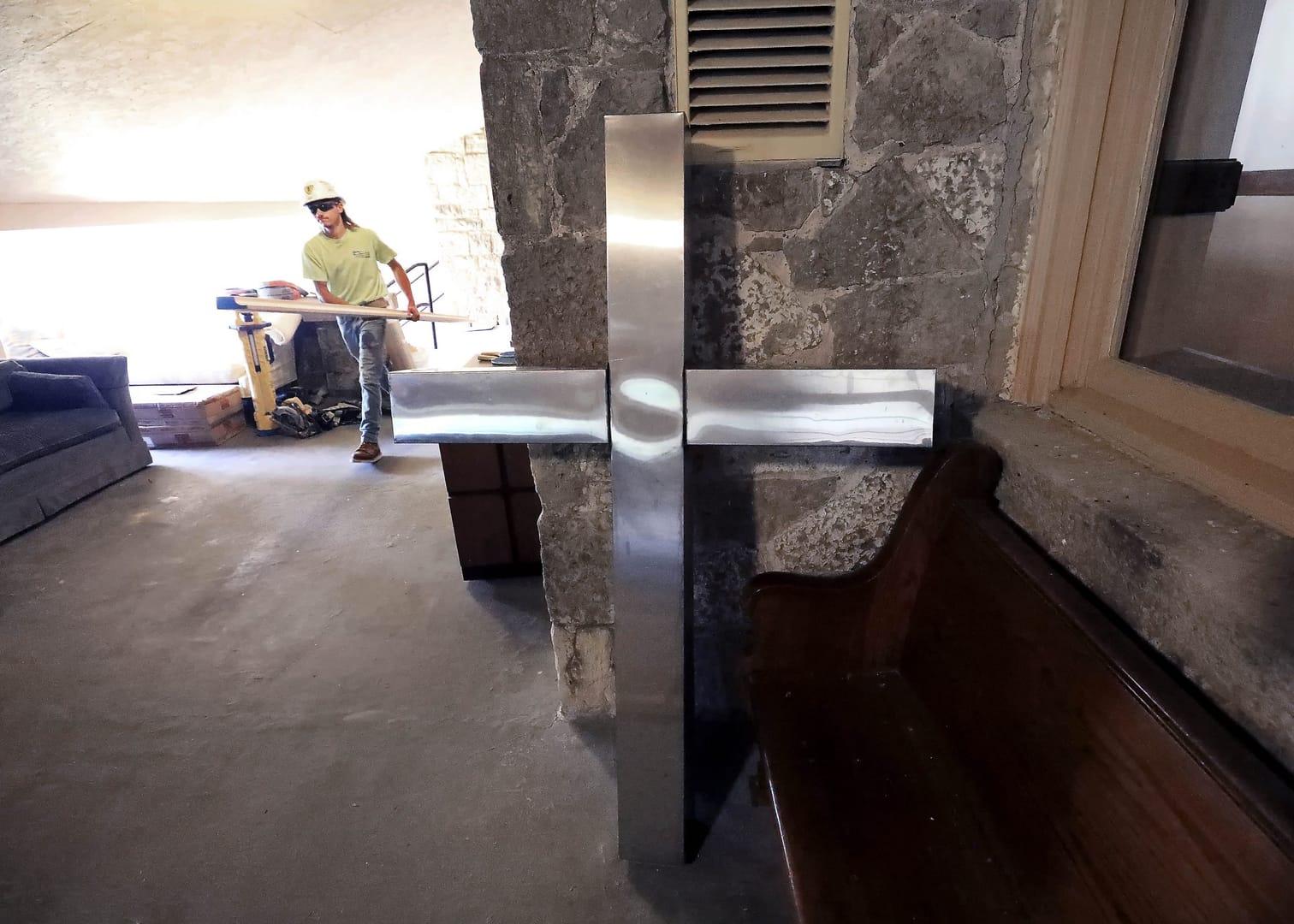In this Sunday’s Gospel Reading, we see the second part of the interaction between Saint Peter and the Lord Jesus at Caesarea-Philippi. After the chief apostle’s declaration of the divinity of Jesus, the Lord gives to his apostles the first of three prophecies about his Paschal Mystery, namely, his Passion, Death, and Resurrection.
Saint Peter cannot bear the prophetic words. He takes the Lord aside by himself, and dismisses the idea that any such treatment should ever befall him. In response, the Lord Jesus denounces Peter, and tells him: “You are thinking not as God does, but as human beings do.”
We can only imagine the emotional response of the Galilean fisherman to such words of the Lord. There must have been some element of shock, since the Lord breaks the one-on-one with Peter and redirects his attention to the entire group of apostles. The Lord has a related, and pressing, message for anyone who wishes to follow him.
In words that have echoed down through the ages, the Lord Jesus declares: “Whoever wishes to come after me must deny himself, take up his cross, and follow me.”
While strong in any context, the words truly lose their bite outside of the historical context in which the Lord originally spoke them. In the first century, any reference to “the cross” would have stopped anyone in their tracks. It would have filled them with immediate horror and alarm.
The cross was a means of torture and terror. It was used by the occupying Roman power to intimidate and to demand total subjugation.
Even among the Romans, the cross was acknowledged as brutal and barbaric. While it was considered a necessary evil against any subject who questioned Rome’s authority or system of taxation, it was not permitted to be used against any formal citizens because it was so heinous and inhumane.
In terms of the cross, the great Roman philosopher Cicero wrote that even the word “crucifixion” should not be uttered by educated people since it was so base and savage.
As an indication of the viciousness of crucifixion, the English word “excruciating” comes from it, and reflects the reality of the immense suffering of its victims.
With this background, we can now more fully understand the reaction of the initial hearers of the Lord, as he announced to them the central place of the cross in following him. We can imagine the possible questions that flooded their hearts: Did he just say the cross? What is he talking about? Surely, he cannot mean the cross? This is a hard saying. Who can follow him?
Yes, the Lord said to those who first heard him, and to each of us today, that if we want to follow him and be worthy of him, then we must take up our cross.
In the twenty-first century we can struggle to grasp the practical implications of such a summons. The cross has become almost overly poetic. It’s history as a mean of torture and fear has been lost. For many, the cross is merely a piece of jewelry or church decoration. How can we understand the starkness of the cross in our world today?
Regrettably, many states still have a legalized death penalty. While still not a parallel, perhaps a broad reference can help. Imagine the Lord Jesus saying to us today: If you want to follow me, then you must come and sit on my lap in the electric chair. You must be willing to be electrocuted with me or you are not worthy of me.
Perhaps the shock of reading the above might jolt us, and help us to somewhat understand with new eyes the command of the Lord Jesus to each of us: Take up your cross!
It is significant that the Lord gives this compelling directive of the cross right after he prophesies about his own passion and death. In a sense, the Lord is inviting each of his followers to literally follow him in taking up the cross. In a broader spiritual sense, he is calling each of his disciples to die to themselves, their sinfulness, brokenness, and selfishness.
In such a way, every Christian fights, and is liberated from, the wayward passions and the fears of our fallen world. In carrying their cross, Christians are allowing grace to work, as old vice is replaced by new and emboldened virtue. The cross stands as the best tutor in the ways of faith, the best exercise in the practice of hope, and the sure companion along the most excellent way of love. In this way, the cross calls us out of ourselves and into a deeper commitment to God and our neighbor.
And so, it is the brutality of the cross – carried in faith, hope, and love – that refines us, and brings forth meek and humble hearts. The cross makes our hearts more like the Lord’s, and so we must be willing to carry it if we want to truly follow him.
Follow Father Jeffrey Kirby on Twitter: @fatherkirby














